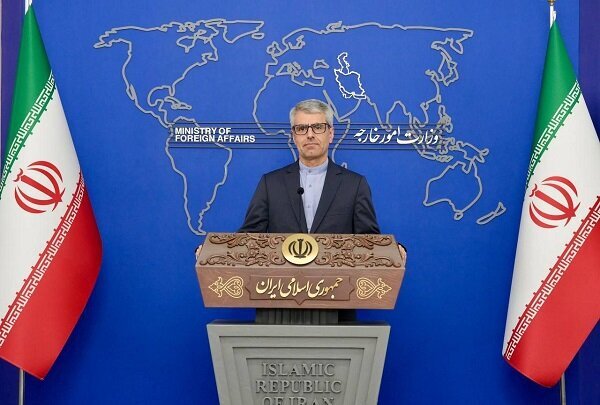America’s Middle East Strategy: Prioritizing Israel in Foreign Policy
In recent times, the Israel-Palestine conflict has highlighted the unwavering commitment of U.S. policy towards Israel. While many are aware of the U.S.’s pro-Israel stance, few could foresee the extent to which this allegiance would manifest in the current geopolitical landscape. The dynamics of this relationship have sparked discussions among scholars and policymakers alike, emphasizing the complex nature of U.S. involvement in the Middle East.
The influence of the U.S. in the Middle East has been profound and multifaceted. Various countries in the region have aligned themselves with U.S. policies for a variety of reasons, yet recent proposals—such as former President Trump’s suggestion to relocate Palestinians to Egypt and Jordan—highlight the harsh realities of compromise in these negotiations. It seems that the lesson learned is that compromise often yields little in the way of reward.
Academics globally have scrutinized America’s policy towards the Middle East, noting its critical role as an external actor. As someone dedicated to this field, I often reflect on the assumptions behind U.S. actions. A conversation in 2013 with a prominent American scholar, who expressed frustration about U.S. policies being defined by three words: “Israel, Israel, and Israel,” left a lasting impression on me. This candid assessment, albeit charged with emotion, underscores a significant perspective on U.S. priorities in the region.
Despite his lack of direct expertise in Middle Eastern studies, this professor’s viewpoint echoed a broader sentiment about America’s unwavering commitment to Israel. It raises questions about the implications of prioritizing a singular relationship over a more balanced approach to regional stability and human rights.
Statistics reveal an astonishing reality: the U.S. has provided over $260 billion in assistance to Israel over the past seventy years. This unwavering support has included vetoing nearly every resolution condemning Israel’s military actions against the Palestinians, effectively shielding it from accountability. Furthermore, U.S. support has facilitated Israel’s military dominance, allowing it to maintain superiority over both Palestine and its Arab neighbors.
Since the onset of the Al-Aqsa Flood, U.S. partiality towards Israel has escalated dramatically. Over the past sixteen months, more than 40,000 Palestinian lives have been lost due to Israeli military operations, with an additional 200,000 suffering from starvation and inadequate medical care. The humanitarian crisis in Gaza represents a significant moral failing, as the U.S. continues to provide military aid to Israel while ignoring the dire conditions faced by Palestinians.
One of the most controversial proposals emerged from Trump’s administration, suggesting that the U.S. would take control of Gaza and develop real estate, effectively relocating Gazans to neighboring countries. This notion not only reflects a disregard for Palestinian sovereignty but also illustrates a mindset that borders on exploitation of the region’s resources and people.
As we analyze Trump’s efforts during his presidency to legitimize Israel’s territorial gains, it becomes clear that U.S. policy may continue to evolve in a manner that recognizes Israel’s interests over Palestinian rights. The Middle East is experiencing significant shifts in regional order as a result of the Al-Aqsa Flood, with various actors vying for influence and control.
Key points about the evolving situation include:
- Israel’s Goals: Israel aims to solidify its regional dominance with the backing of the U.S., seeking to maximize its territorial and security interests.
- Normalization of Relations: Israel is pursuing normalization of relations with additional Arab nations while sidelining the two-state solution.
- Impact on Palestinians: The ongoing strategies threaten the legitimate aspirations of the Palestinian people and exacerbate their plight.
- Regional Stability: Neighboring countries may face increased domestic challenges due to rising discontent among their populations regarding their governments’ policies.
As these dynamics unfold, countries such as Egypt and Jordan will likely experience heightened pressure from the influx of refugees, complicating their own political landscapes. The possibility of intensified unrest throughout the region cannot be overlooked, as the public becomes increasingly aware of their governments’ complicity in the ongoing occupation and suffering.
The lessons drawn from this situation are indeed bitter: compromise often fails to yield positive outcomes. Many nations in the region have sought security through alignment with U.S. interests, only to find that their compliance leads to further demands and a sense of inferiority. Despite persistent efforts to secure protection, true stability remains elusive, and decades of conflict have shown that reliance on U.S. support does not guarantee safety.
In conclusion, the pressing question remains: will the harsh realities of this geopolitical landscape lead to a reevaluation of strategies and alliances? The road ahead is fraught with challenges, but the lessons learned from past compromises may finally prompt a shift in perspective among regional actors.
Jin Liangxiang is a Senior Research Fellow at the Shanghai Institutes for International Studies.






